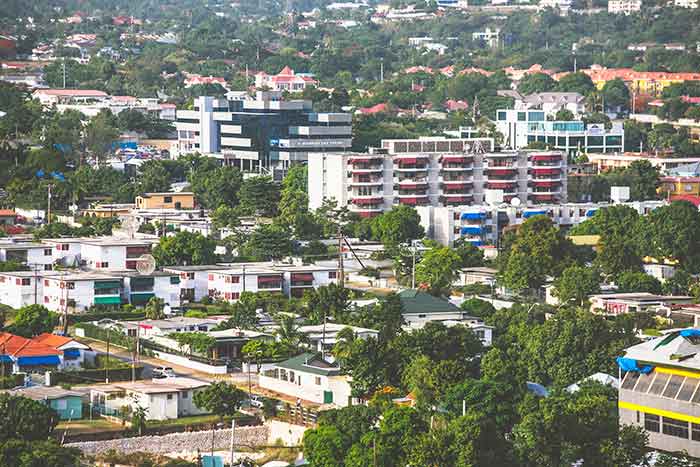web_kingstonjamaica_istock_41698062_large.jpg

Kingston, Jamaica
This was the preliminary conclusion of the latest IMF mission, completed on 19 August, to review the country’s adherence to the scheme. The mission reported that the Jamaican economy was growing steadily but unemployment remained high.
Jamaica has been receiving loans under the EFF since 2013, with the scheme designed to assist countries with medium-term balance of payments problems. An IMF report on Jamaica in June hailed the country’s ‘exceptional’ progress in implementing reforms.
Growth projections for the Jamaican economy for the 2015/16 fiscal year have been revised up to 1%, driven by agriculture and manufacturing. And growth is expected to reach 1.7% next year as ongoing investment in areas such as tourism kicks in, and the agricultural sector continues its strong recovery.
Inflation in Jamaica’s economy remains low, while international reserves continue to increase, reaching almost $3bn at the end of July. However, unemployment was stubbornly high at 13.7% partly reflecting an expansion in the labour force.
Dr Uma Ramakrishnan, who led the mission, said her team had reached a preliminary agreement with the Jamaican authorities on a set of policies that would unlock the next batch of funding under the EFF.
The mission’s report will be reviewed by the IMF board in September. On approval, around $40m will be made available to Jamaica.
Ramakrishnan commented: “Programme implementation under the EEF remains strong – all quantitative performance targets through end-June were met, with tax revenues exceeding expectations, and structural reforms are well in train.”
She also confirmed her team had discussed with the country’s authorities the possibility of a successor programme to begin after the current EFF expires in April 2017. These talks will progress in the coming months.
Continued implementation of the government’s growth strategy was essential to support job creation and poverty alleviation, Ramakrishnan added.
“In this context, strengthening the social safety net will be essential to shield the poor and vulnerable from any adverse effects due to the shift from direct to indirect taxation,” she said.
“The mission underscores the importance of ongoing reforms in the public sector to achieve efficiency gains.”













